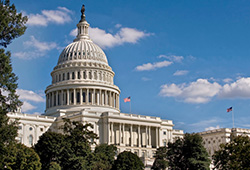 On May 11, 2017, Scott Gottlieb was sworn in as the 23rd Commissioner of the U.S. Food & Drug Administration. Before his confirmation, Gottlieb was vocal about his disapproval of the FDA’s “well-established” attitude: an excessive desire for certainty, which he says “is impeding the availability of safe, effective drugs that could today be helping real patients.” Gottlieb favors a more rapid pace of drug approvals, stating that “[i]n so heavily prioritizing one of its obligations – the protection of consumers – the FDA has sometimes subordinated and neglected its other key obligation, which is to guide new medical innovations to market.”
On May 11, 2017, Scott Gottlieb was sworn in as the 23rd Commissioner of the U.S. Food & Drug Administration. Before his confirmation, Gottlieb was vocal about his disapproval of the FDA’s “well-established” attitude: an excessive desire for certainty, which he says “is impeding the availability of safe, effective drugs that could today be helping real patients.” Gottlieb favors a more rapid pace of drug approvals, stating that “[i]n so heavily prioritizing one of its obligations – the protection of consumers – the FDA has sometimes subordinated and neglected its other key obligation, which is to guide new medical innovations to market.”
Before the BPCIA was implemented, Gottlieb explained that an abbreviated regulatory pathway for biosimilars could produce cost savings and expand access to treatment. Gottlieb recognized that implementation, “and the issues that emerge as rubber meets the road at the Food and Drug Administration,” play a role in the development of biosimilars. “A lot of FDA’s deliberation surely owes to the complexity of the underlying science. Despite some early hyperbole leading up to passage of the biosimilars legislation about how easy it would be to copy biologics and prove their similarity or sameness in abridged trials, the fact remains that this is not a uniformly trivial endeavor.” He praised the European Medicine Agency’s “regulatory process that creates genuine savings,” while stating that the FDA “still has to make key regulatory decisions” about labeling, interchangeability, and bioequivalence.
Gottlieb could have a transformative effect on the drug approval process, including the pathway for biosimilars. Stay tuned to the Big Molecule Watch for further developments.
